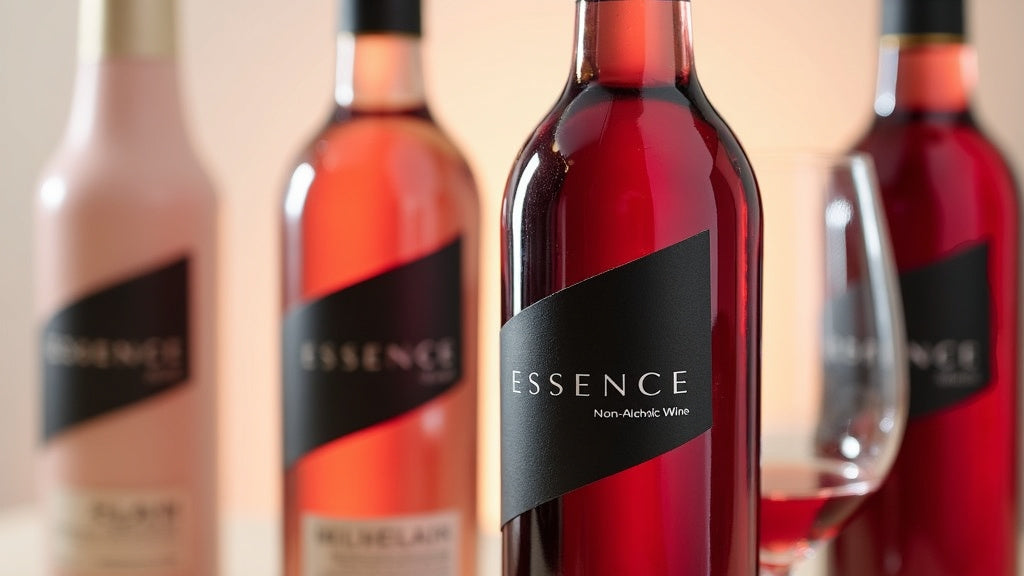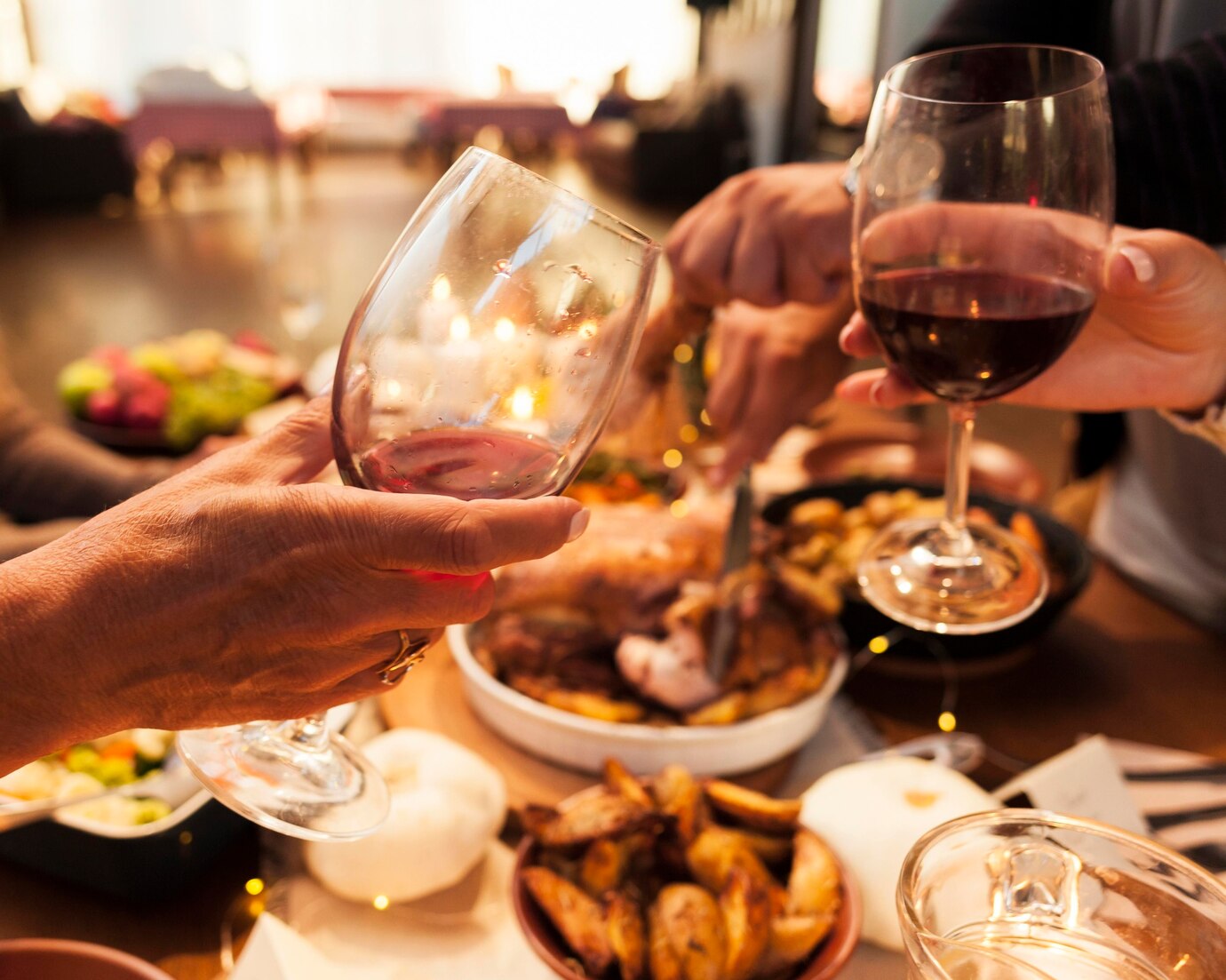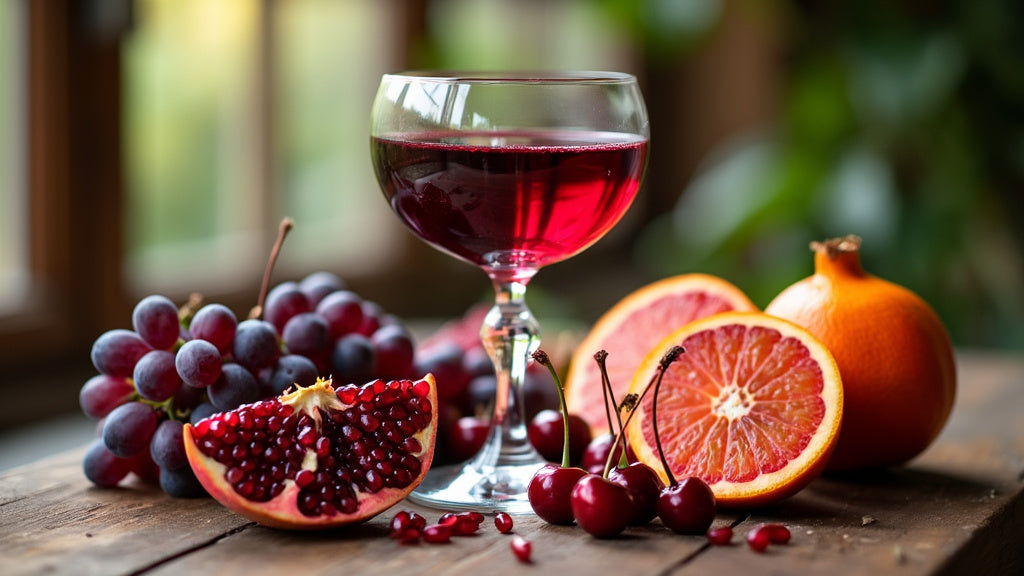12 Innovative Water Conservation Techniques in Non-Alcoholic Wine Production
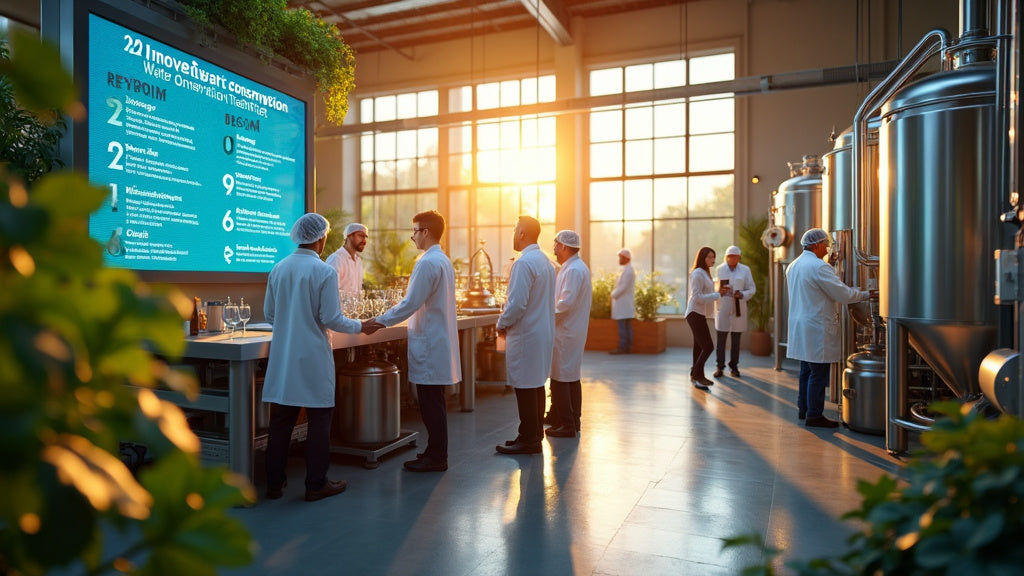
Water conservation is crucial in non-alcoholic wine production. Let's explore 12 innovative techniques that are making a splash in the industry, helping producers create delicious wines while minimizing their environmental impact.
| Key Takeaways |
|---|
| 1. Drip irrigation can reduce water usage by up to 50% |
| 2. Smart sensors optimize watering schedules and reduce waste |
| 3. Water recycling systems can save up to 70% of water in winery operations |
| 4. Drought-resistant grape varieties require less water to thrive |
| 5. Rainwater harvesting provides a sustainable water source for vineyards |
1. Drip Irrigation: Precision Watering
Drip irrigation is a game-changer for non-alcoholic vineyards. This system delivers water directly to plant roots, reducing waste and improving efficiency. It's like giving each grape vine its own personal water bottle! By using drip irrigation, vineyards can reduce water usage by up to 50% compared to traditional sprinkler systems.
For example, YOURS Non-Alcoholic Wine uses advanced irrigation techniques to grow their grapes. This helps them produce delicious wines like their California Red Blend while saving water. The precise application of water also promotes healthier root growth and can improve the overall quality of the grapes.

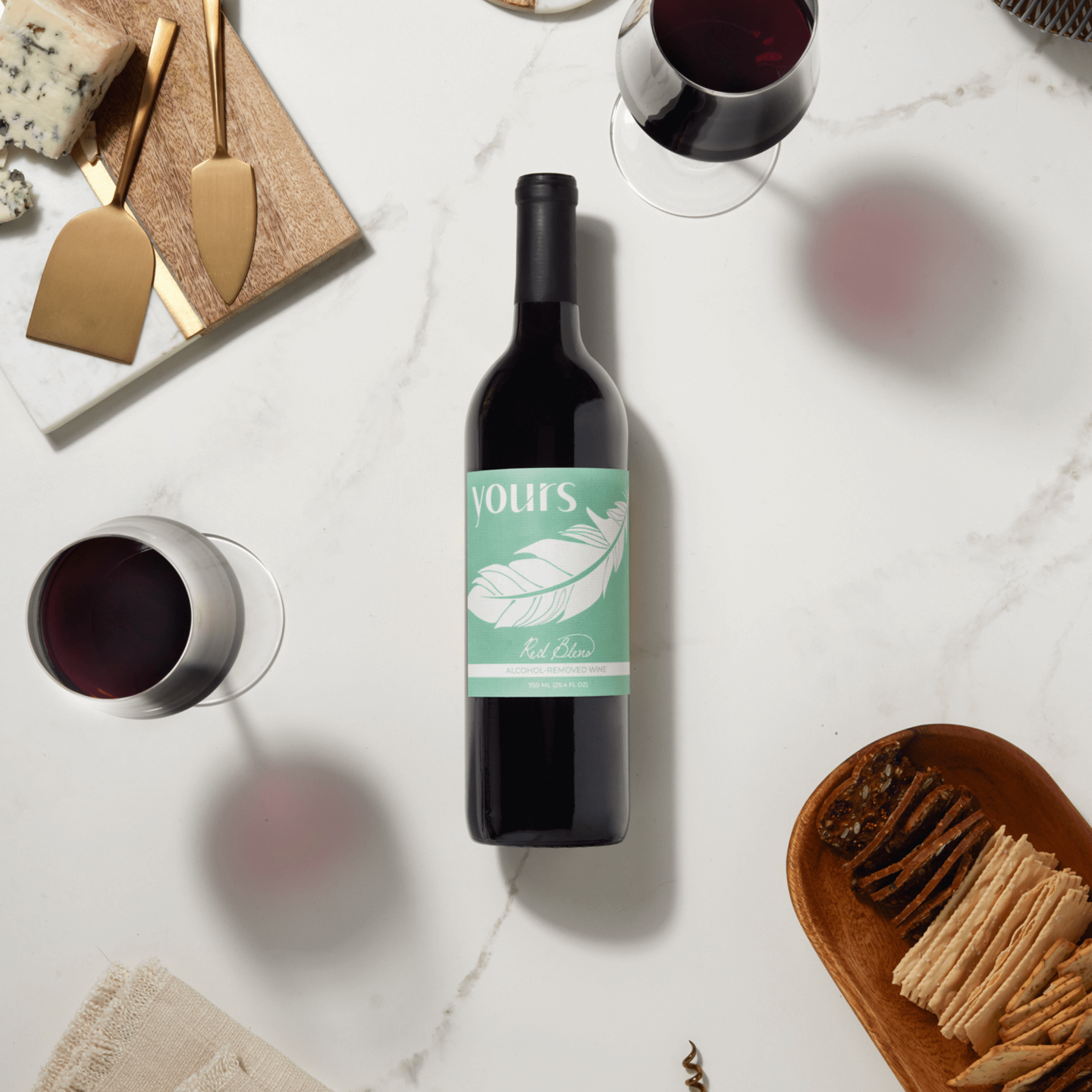
2. Smart Sensors: Data-Driven Irrigation
Smart sensors are like tiny weather stations for vineyards. They measure soil moisture, temperature, and other factors to help winemakers water their vines just right. No more guesswork! These sensors can reduce water usage by 20-30% by providing real-time data on soil conditions and plant needs.
These sensors help produce wines like YOURS Non-Alcoholic Cabernet Sauvignon, ensuring each grape gets exactly what it needs to thrive. By optimizing irrigation schedules, smart sensors not only conserve water but also contribute to better grape quality and yield.
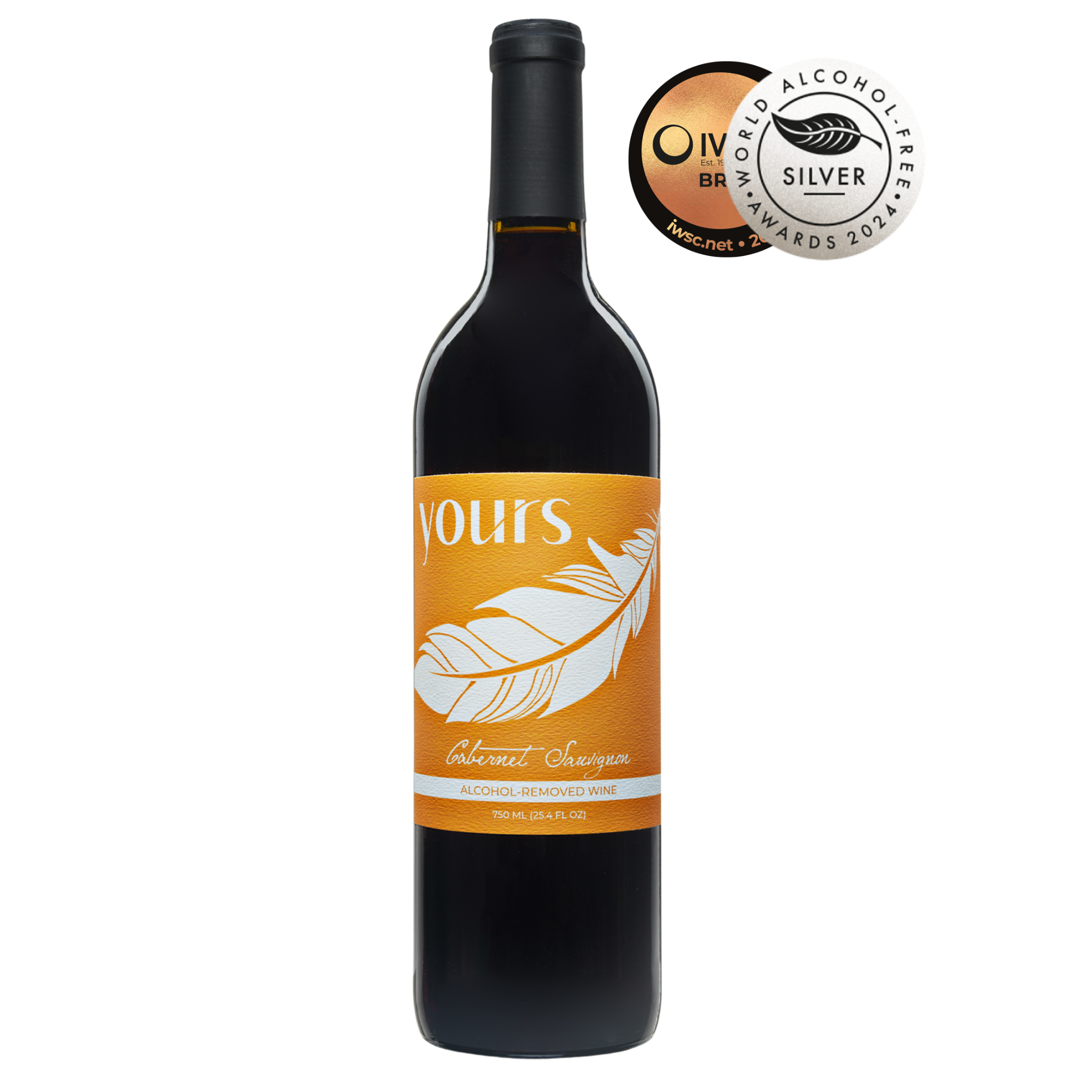
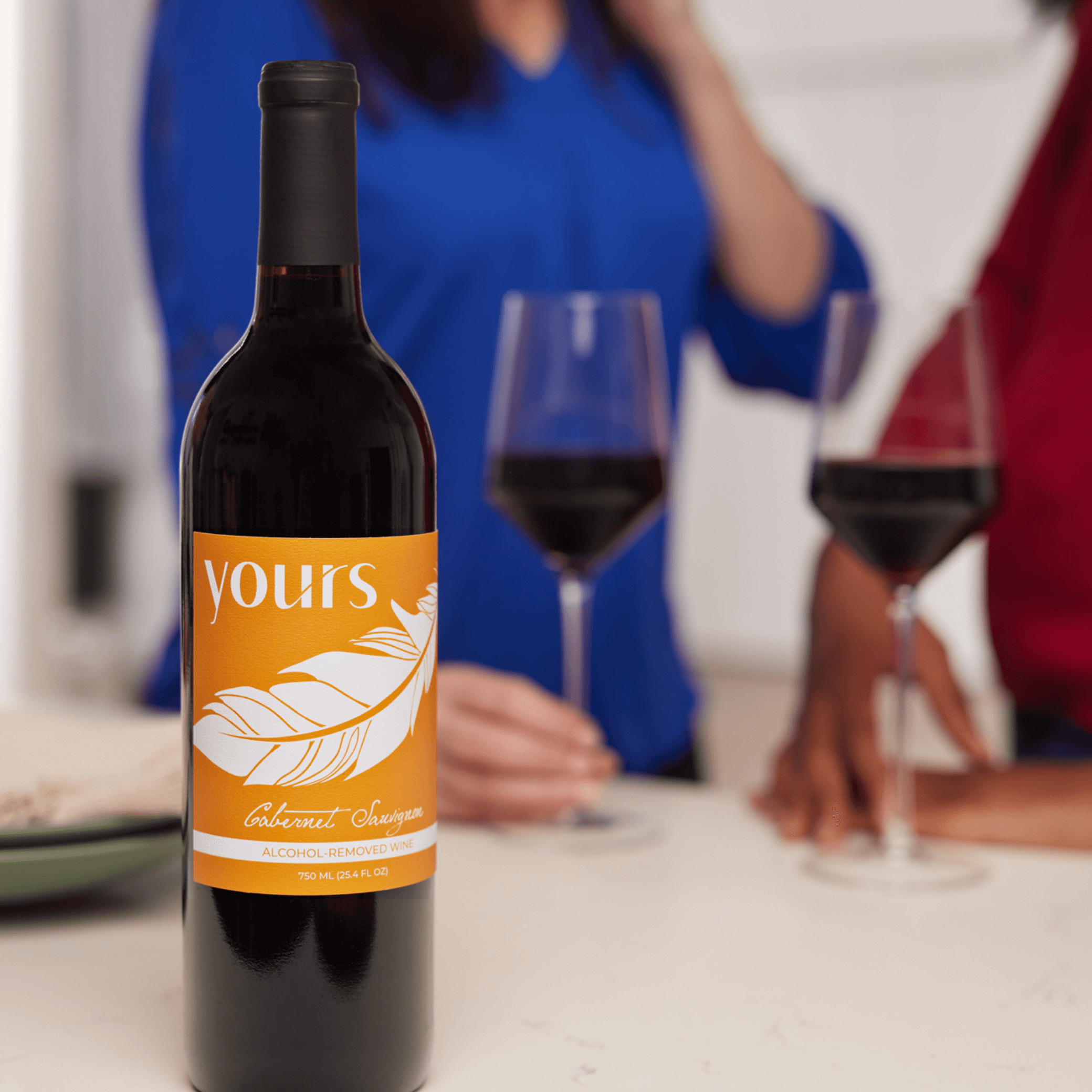
3. Water Recycling: Waste Not, Want Not
Non-alcoholic wineries are getting creative with water recycling. They clean and reuse water from various processes, like cleaning tanks and bottles. It's like giving water a second job! On-site water treatment and recycling systems can save up to 70% of the water used in winery operations.
This recycling helps create refreshing drinks like YOURS Non-Alcoholic Rosé without wasting precious water resources. By implementing closed-loop systems, wineries can significantly reduce their freshwater intake and minimize wastewater discharge.
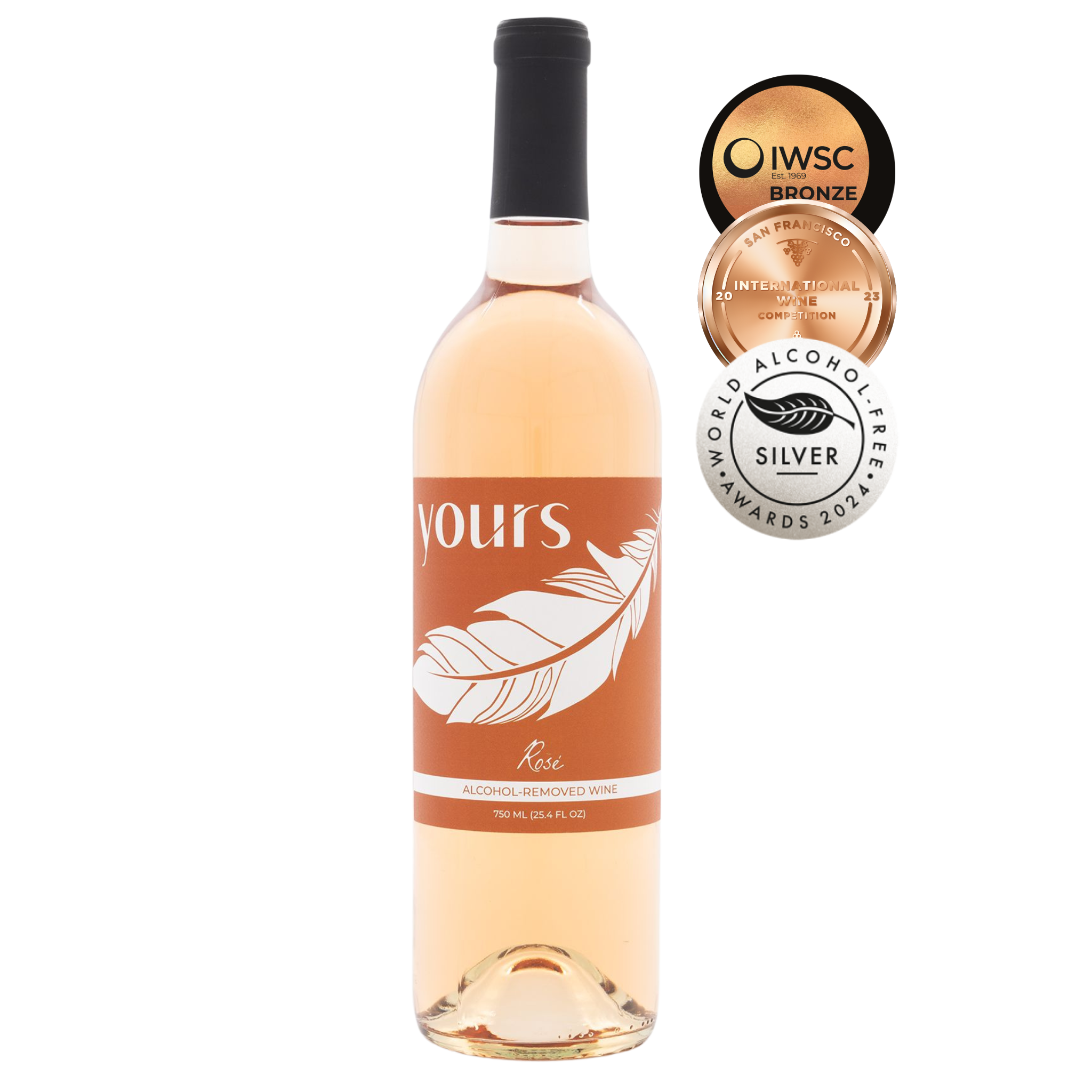
4. Drought-Resistant Grapes: Thirsty No More
Some grape varieties are like camels - they don't need much water to thrive. Winemakers are choosing these drought-resistant grapes to make tasty non-alcoholic wines while saving water. These varieties have adapted to arid conditions and can produce quality grapes with less irrigation.
These hardy grapes help create delicious options like YOURS Non-Alcoholic Chardonnay, which sips less water during production. By selecting drought-resistant varieties, vineyards can maintain productivity even in water-scarce regions or during periods of drought.
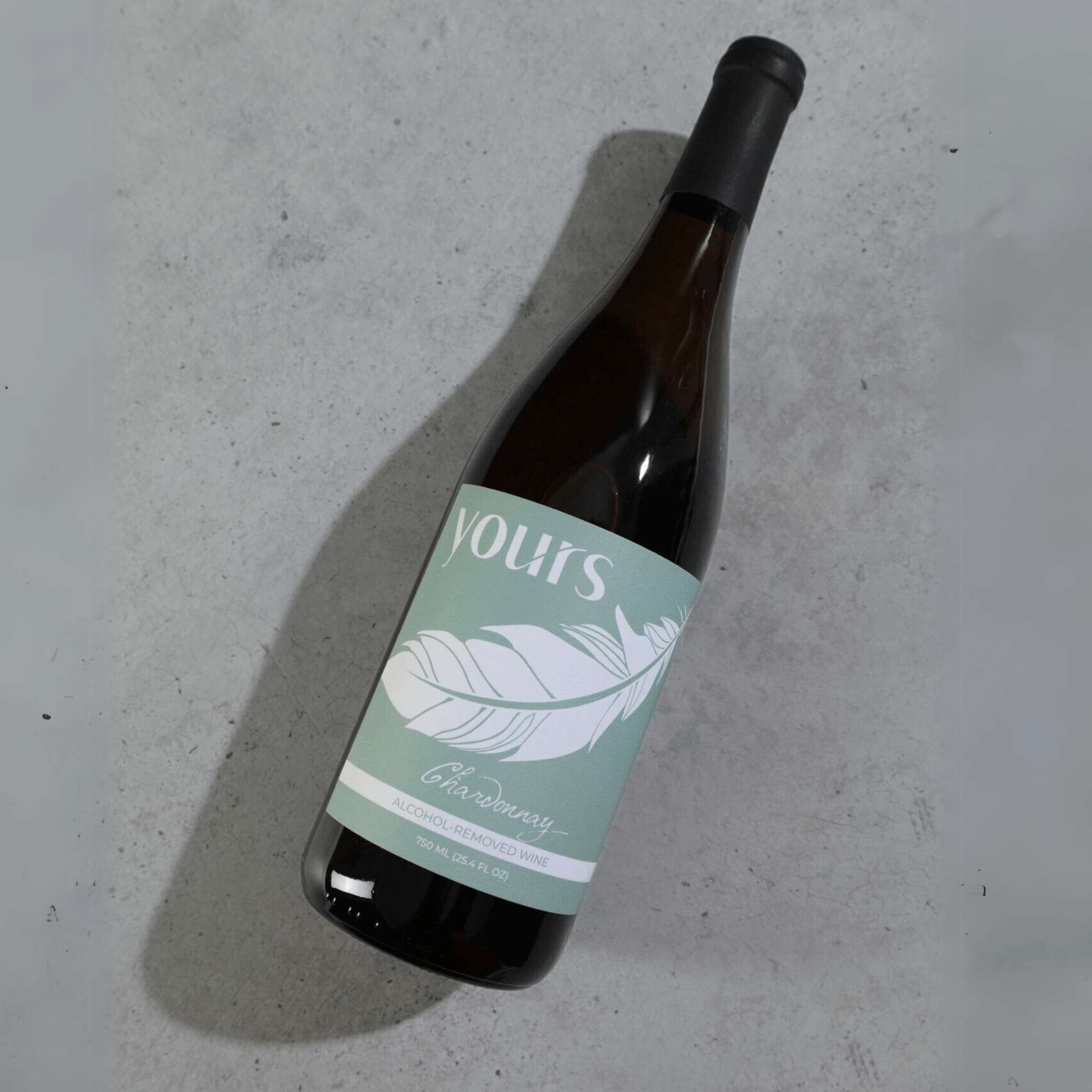
5. Rainwater Harvesting: Every Drop Counts
Non-alcoholic wineries are catching rain like kids catch snowflakes on their tongues. They collect and store rainwater to use in their vineyards and production processes. It's like having a giant water piggy bank! Rainwater harvesting systems can provide a significant portion of a vineyard's water needs, reducing reliance on municipal water supplies or groundwater.
This harvested rainwater can be used to create various non-alcoholic wines, like those in the YOURS Non-Alcoholic Wine Sampler Pack. By capturing and storing rainwater, wineries can ensure a more sustainable water supply, especially during dry seasons.
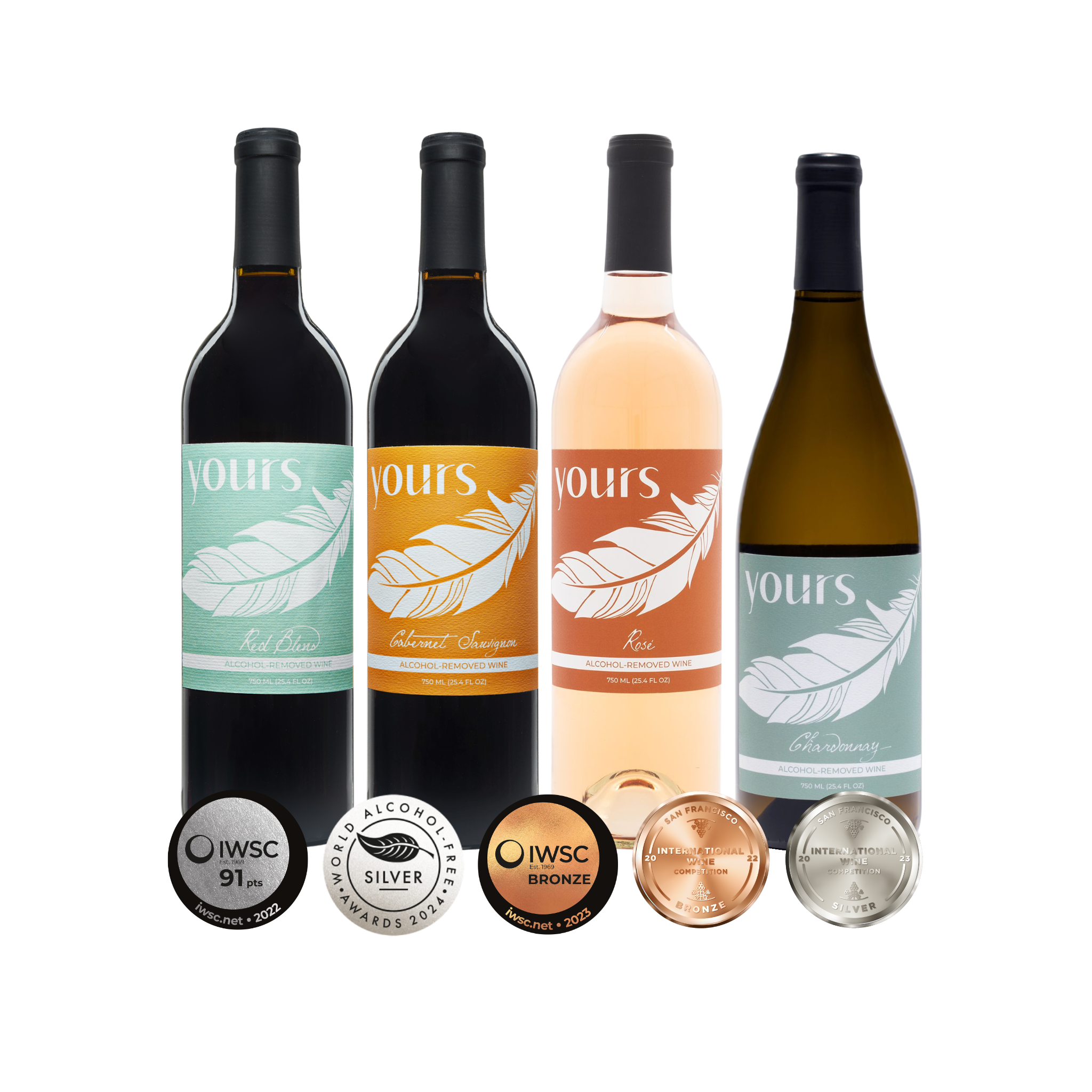
6. Cover Crops: Nature's Water Sponges
Cover crops are like living mulch for vineyards. They help soil hold onto water, reduce erosion, and even add nutrients. It's like giving the vineyard its own water-saving superhero! Cover crops can improve soil structure, increase organic matter content, and enhance the soil's water-holding capacity.
These crops contribute to the production of wines like YOURS Non-Alcoholic California Red Blend, enhancing soil health and water retention. By reducing water runoff and improving soil moisture, cover crops can decrease the need for irrigation and promote overall vineyard sustainability.
Water Usage in Vineyards
7. Eco-Friendly Cleaning: Squeaky Clean, Water Lean
Non-alcoholic wineries are using cleaning methods that use less water but still keep everything spick and span. It's like having a super-efficient car wash for wine equipment! These methods include high-pressure, low-volume cleaning systems and the use of environmentally friendly cleaning agents that require less rinsing.
These cleaning practices help create crisp, clean-tasting wines like YOURS Non-Alcoholic California Chardonnay. By optimizing cleaning processes, wineries can significantly reduce their water consumption without compromising on hygiene or product quality.

8. Precision Viticulture: High-Tech Grape Growing
Precision viticulture uses technology like drones and satellites to monitor vineyards. It's like having a bird's eye view of every grape! This helps winemakers use water more efficiently by identifying areas that need more or less irrigation. Precision viticulture can lead to water savings of up to 30% while improving grape quality and yield.
This tech-savvy approach contributes to the production of premium non-alcoholic wines like those in the YOURS range. By using data-driven decision-making, winemakers can optimize resource use and produce high-quality grapes with minimal environmental impact.
Key Benefits of Precision Viticulture in Water Conservation
- Drip irrigation saves up to 50% water compared to traditional sprinklers
- Advanced sensors reduce water usage by up to 30% through precise timing
- Satellite imaging optimizes irrigation schedules and identifies water waste
- Drone technology enables real-time adjustments to irrigation
- On-site water treatment reduces fresh water needs by up to 70%
- Cover cropping retains soil moisture and improves soil health
- Mulching suppresses weeds and retains soil moisture
9. Water-Efficient Processing: Less is More
Non-alcoholic wine producers are finding clever ways to use less water when removing alcohol from wine. It's like a magic trick that saves water! These methods include vacuum distillation and reverse osmosis, which require less water than traditional dealcoholization processes. Some producers have reported water savings of up to 50% in their dealcoholization processes.
These efficient methods help create flavorful non-alcoholic options like YOURS Non-Alcoholic Cabernet Sauvignon. By optimizing the dealcoholization process, producers can maintain wine quality while significantly reducing their water footprint.
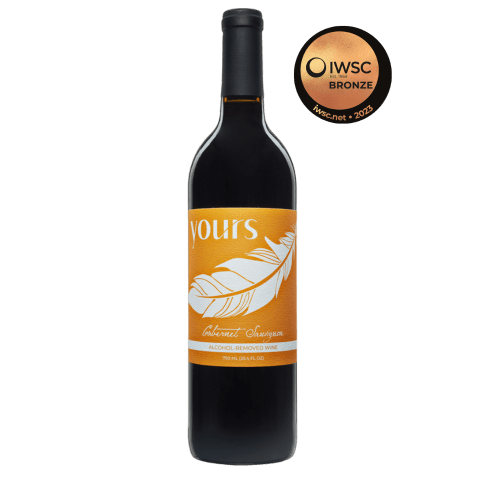
10. Sustainable Packaging: Bottles That Save
Some non-alcoholic wine companies are using packaging that needs less water to produce and clean. It's like giving each bottle a tiny water-saving superpower! This includes lightweight glass bottles, recycled materials, and alternative packaging options like boxed wines or cans. These packaging choices can reduce water usage in the production and transportation phases.
This sustainable approach is evident in products like the award-winning YOURS Non-Alcoholic California Red Blend. By choosing eco-friendly packaging, producers can reduce their overall environmental impact while still delivering high-quality non-alcoholic wines to consumers.

11. Consumer Education: Knowledge is Power
Non-alcoholic wine producers are teaching customers about water conservation. It's like a mini eco-friendly lesson with every sip! They're using labels and websites to share information about their water-saving practices and the importance of sustainable wine production. This education can lead to increased consumer awareness and support for water-conscious brands.
For example, YOURS Non-Alcoholic Wines provides information about their sustainable practices on their website and product pages. By engaging consumers in their sustainability efforts, producers can create a more environmentally conscious market for non-alcoholic wines.
Learn more about non-alcoholic wines and their production in this comprehensive guide to non-alcoholic white wines.
12. Industry Collaboration: Teamwork Makes the Dream Work
Non-alcoholic wine producers are working together to find new ways to save water. It's like a big brainstorming session for the whole industry! This collaboration often involves sharing best practices, participating in research initiatives, and developing industry-wide standards for water conservation. By working together, producers can accelerate the adoption of water-saving technologies and practices.
This collaboration leads to innovations that benefit all non-alcoholic wine producers and consumers. It also helps the industry as a whole to become more sustainable and resilient in the face of water scarcity challenges.
Drip Irrigation Systems
Reduces water usage by up to 50% compared to traditional methods
Advanced Sensors and Precision Irrigation
Reduces water usage by 20-30% and improves crop yields
On-Site Water Treatment and Recycling
Saves up to 70% of water used in winery operations
Conclusion: Sip Sustainably
Water conservation in non-alcoholic wine production is more than just a trend - it's a necessity. By using these innovative techniques, producers like YOURS are creating delicious wines that are kind to your body and the planet. These water-saving practices not only help preserve our precious water resources but also contribute to the overall sustainability of the wine industry.
Next time you enjoy a glass of non-alcoholic wine, remember the water-saving magic behind each sip. From the vineyard to your glass, every step of the production process has been optimized to use water efficiently while maintaining the quality and flavor you expect. Cheers to sustainable sipping!
Want to try some eco-friendly non-alcoholic wines? Check out the YOURS Non-Alcoholic Wine Sampler Pack to taste the difference yourself! By choosing water-conscious brands, you're not only treating yourself to a delicious, alcohol-free beverage but also supporting sustainable practices in the wine industry.

